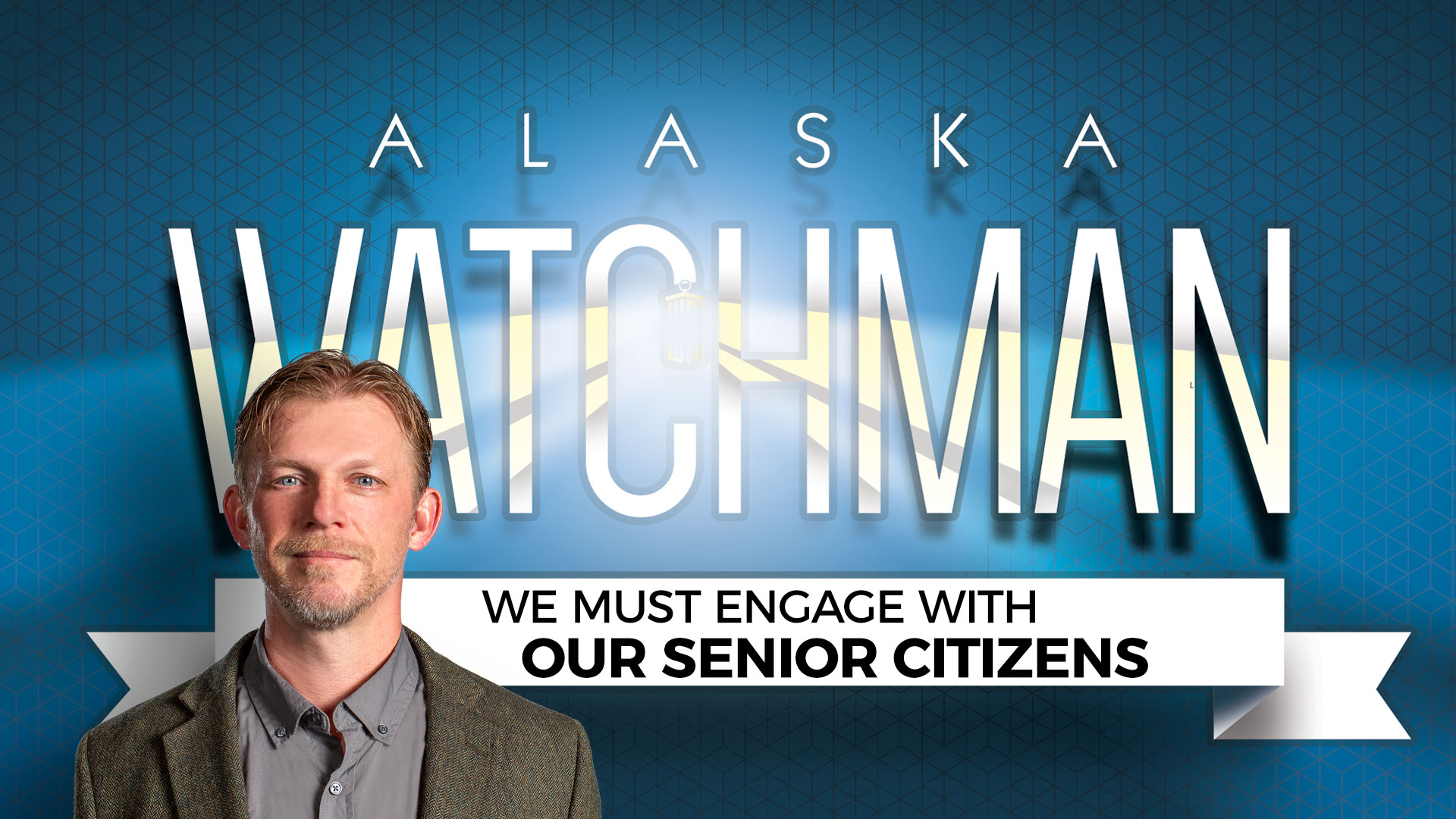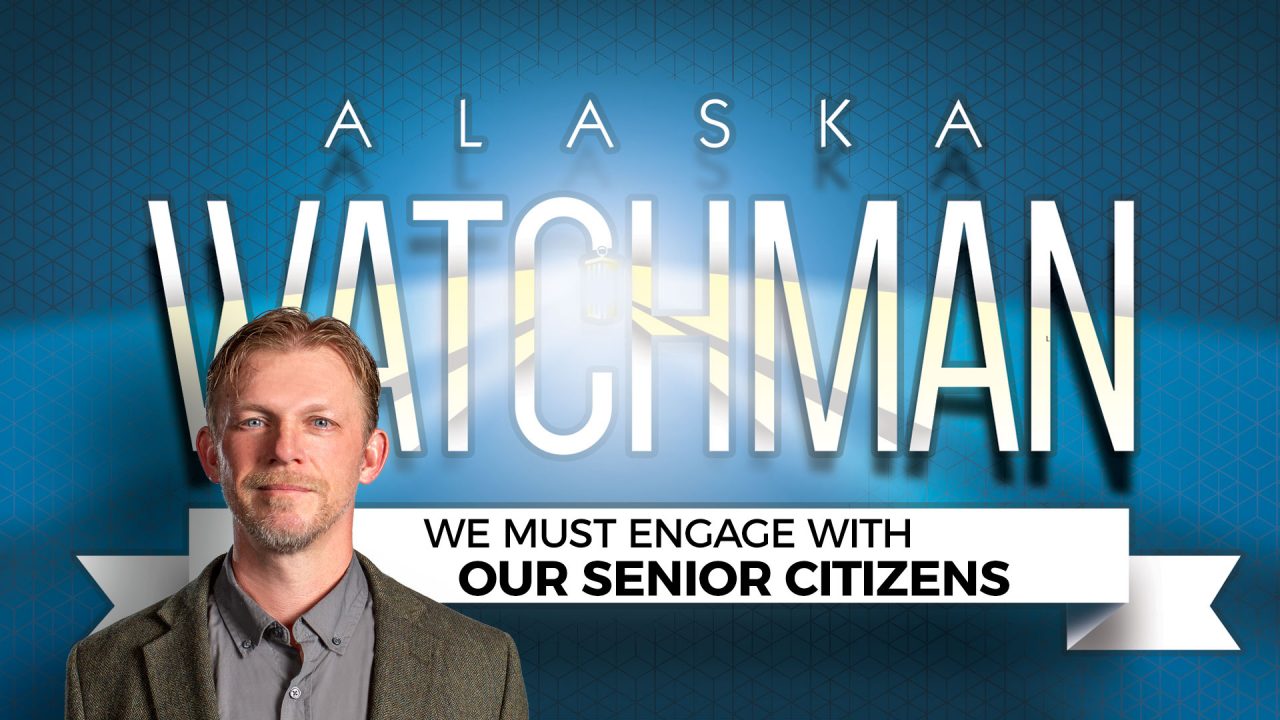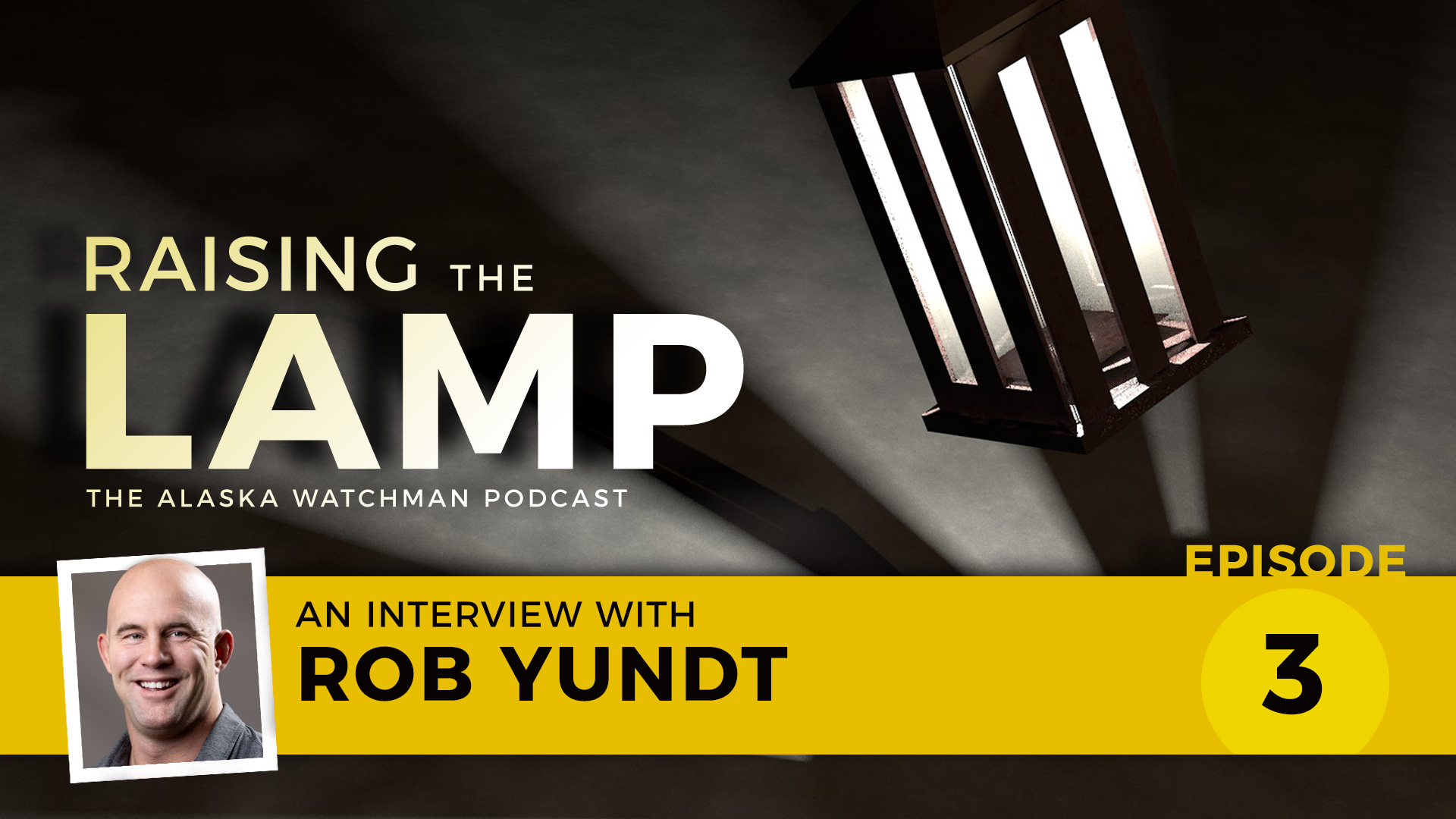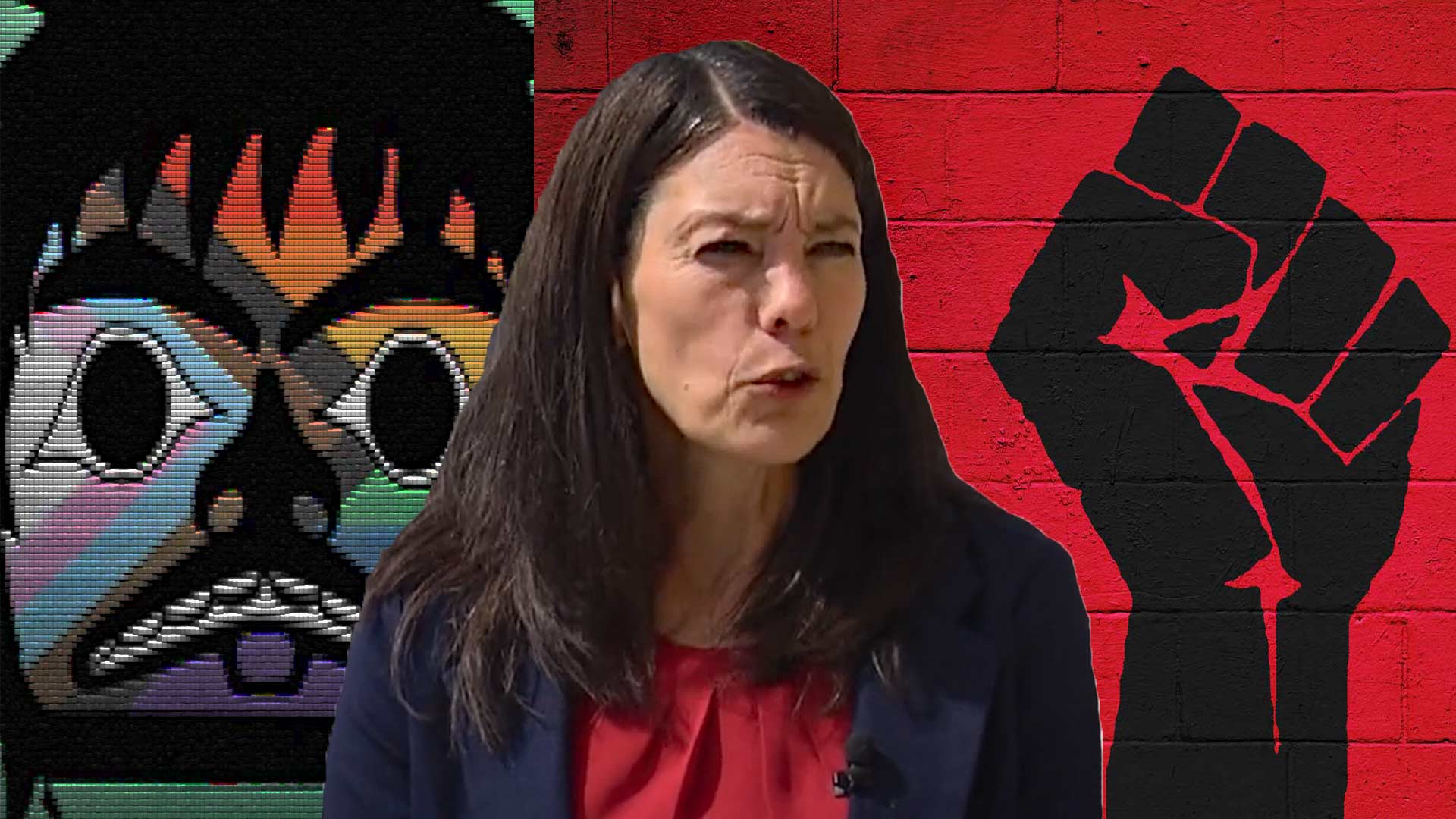
The number of Alaskan seniors has grown by more than 5% each year for the past decade. That’s faster than any other state in the union.
Right now, we have about 100,000 Alaskans age 65 or older. By 2034 – just 14 years from now – the state estimates that number will surpass 138,000. As Alaska’s Baby Boomers age, many become increasingly dependent on family, friends and neighbors for help in daily activities they once took for granted.
ALASKA WATCHMAN DIRECT TO YOUR INBOX
In a very real sense, this presents a stark moral challenge for us.
These are our mothers, fathers, grandparents, teachers, coaches, friends, pastors and mentors. Many of them invested vast amounts of time, resources and personal attention into our lives. No one is perfect, but we would likely be the poorer without their love and sacrifice.
As the tables turn, and they become increasingly dependent on us, we have a moral obligation to step up and return this love in kind.
The older the person, the more time they spent apart from others.
One of the greatest challenges facing the elderly is the amount of time they spend alone. Even before COVID hit, Americans 60 and older spent more than half their waking hours alone, according to Pew Research. This includes all waking hours apart from time engaged in personal activities such as grooming.
The older the person, the more time they spent apart from others.
This kind of social isolation often results in less mental engagement and more difficulty staying active or even taking medications. It also means there’s a greater chance that no one will be on hand to help during an emergency. In Alaska, nearly 25% of our seniors live alone, according to the U.S. Census Bureau. Another 3% live in nursing homes or group living facilities.
Ensuring that our older members are cared for goes beyond mere food, water and shelter. It means engaging them as people created in the image of God.
And the road will always be smooth. We might have to rearrange schedules and sacrifice personal time to care for those who once did the same for us.
Growing old is inevitable for us all, but too often our elderly are forgotten, or tucked away out of sight. Their vulnerability must be our call to duty. In many cases this just means taking time to be physically present to them.
The benefits are often run two ways. Our elders have experiences, wisdom and perspectives from a long life that can enrich our own. They are not only our elders in years, but often in wisdom and spiritual maturity. We would do well to sit with them, listen to their stories and struggles, help bear their burdens, and join them in prayer and laughter.
It’s part of being human together.








11 Comments
Thank you for remembering us! ❤
This is also a very critical and opinionated generation just saying. While their adult children and closest relatives are trying to heal from the brokeness and abuse from this baby boomer generation, this generation got to let go some opinions and old communicative bad habits if they seek love, care, and kindness from their adult children. Afterall! This baby boomer generation hadnt raised their adult children Christian, so they can’t expect Christian loving kindness and forgiveness after past offenses happened be an easy action for the younger generation without seeing their parents made reconcilation with God and their behavior has changed.
To forgive is to forget and move forward, the Baby Boomer generation walks to the outside of the woman when going for a stroll hold hands, opens the door for her cherishes the moments they spend together pray together laugh together even cry together.
They said yes sir no sir and no mam’ yes mam’ showed respect for the elderly interreact without contention used openness when communicating, grew up doing chores knew right from wrong believed in accountability loved GOD’s word and put it 1st and loved their Country and Family.
Each generation has it’s flaws and as time goes by they continue to get worse, why because they forget GOD’s word and CHRISTS two commandments.
Many young people were not taught nor cautioned to respect property rights of elders so beware the hostile thoughtless and spiritually depraved. The author no doubt precluded those not inclined to participate but instead addressed the compassionate. Satan enters the temple day and night to accuse the (elderly) brothers unjustly. So do his kids. Showing honor to the elderly is probably the best way to approach one’s own elderly status.
TX. for recognizing the value of society’s Patriarchs & Matriarchs.
Joel: What a powerful address to the reality of our aging Alaskan population. Thank you for expressing your thoughts and concerns. I am so glad I discovered The Watchman as I feel you provide such vital information and insight into different aspects of our lives. I appreciate this very much.
This needs to be preached the the supposed “shepherds” of the church as well. Many do not practice compassion or mercy on senior citizens, rather, and quite literally, kick them to the curbside (making them homeless for the first time in their lives) when they are old and sick.
The separation and removal of our elderly has been a ploy of those who are society manipulators.
Removing these libraries of knowledge and ties to our past has been an underlying evil movement equal to the
vaccine push as we have no where to look but to Govt as our ability to deal with hardship situations has been cut off
and removed from our lives as we conveniently place our most prized in storage until death units called old folks homes.
Now we have seen a in our face a sinister move on the wicked in Govt,s part by this Covid attack on our elderly where they were murdered by the thousands and we were not allowed access as they were intentionally slaughtered and our politicians in govt rank stood by in complicit obedience. This Friday the 28th of may those oath breakers that have enjoyed thieving and murdering our people will know the wrath of a nation as the truth is revealed and arrests begin… You who sit in Juneau who think that pissing on the Constitution and stealing the PFD amongst other things will not be so happy. Georgia will flip on the election fraud as Arizona,,,, You in political power will be arrested for not Standing and defending this nation and state as a foreign power interfered and temporarily stole our election…… Friday the 28th will remain your indelible nightmare…. you made your beds when you allowed this Vaccine madness and abuction and murder of our Seniors by this evil medical tyranny. The time has come for the tab to be paid for treason in full. DOMINION arrests all TRAITORS!!!!!!!
All of this separation into generations like this bullcrap gen x or whatever is satans divide of the human family,,, now every one has a day named after a feeling or class or group. STOP THIS MADNESS WE ARE A HUMAN FAMILY PERIOD….every day is a gift from our CREATOR,,, no frills no special class.
I am a ‘territory baby’, born here in Alaska before the United States took posession in 1959. I would love to see Alaska’s ‘territory babies’ recognized for the contributions we have made to our wonderful State. We have worked here, paid our taxes here, volunteered our time to various organizations, raised our families here. There once was a time when Alaska’s Pioneers were honored, but now it seems as if we have been swept under the carpet and forgotten. I have often thought how nice it would be to have a ‘Territory Baby Appreciation Day’ at Denali Park at the end of the season, like the military gets. Just a suggestion. Well anyway, thank you for this well written article. You folks at the Watchman are always insightful and much appreciated.
A powerful call to action! -because it is so obviously true. And it is a stark and sad example of the dereliction of duty to family that has become a marker of this Age of Self.